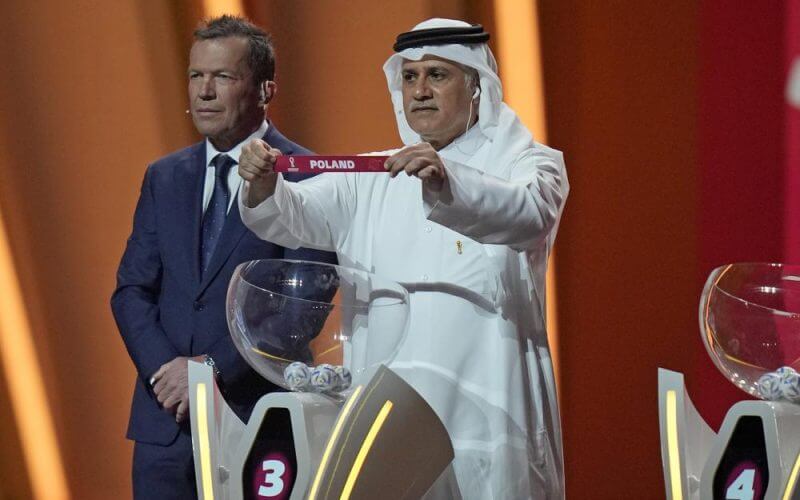Letting Russia try to qualify for the World Cup risked doing “irreparable and chaotic” harm to the competition, FIFA successfully argued at sport’s highest court.
The legal debate between FIFA and Russia’s soccer federation was published Tuesday by the Court of Arbitration for Sport, explaining why its judge denied an urgent Russian request to freeze a ban that excluded its teams from the men’s and women’s World Cups.
The interim ruling in Russia’s appeal on March 18 — pending a full appeal hearing likely due at CAS in the weeks ahead -- ensured the men’s team could not play Poland six days later in the World Cup qualifying playoff. Poland was given a bye and advanced to the tournament in Qatar by beating Sweden in the playoff final.
Poland, Sweden and the Czech Republic — which lost to Sweden — had all stated they would refuse to play Russia in light of the country’s war on Ukraine.
That three-nation boycott of Russia weighed heavily on the urgent CAS ruling, which sided with FIFA’s stated need to “guarantee the smooth running of its flagship competition.”
Though FIFA competition rules typically punish federations whose teams refuse to play scheduled games, soccer’s world body agreed with Poland, Sweden and the Czechs.
“Those decisions are both fully understandable and cannot be criticized from either a legal or moral point of view,” FIFA lawyers said in a submission to the court.
FIFA said it could foresee that other member federations would also refuse to play Russia if the team advanced to the World Cup, saying the consequences for the tournament “would be irreparable and chaotic.”
“Having considered all these factors, FIFA must act to guarantee the efficient organization and smooth running of its competitions.” the governing body said.
Lawyers for the Russian soccer federation argued the ban by the FIFA Council was “a disguised disciplinary sanction” where the right to be heard was denied.
The ruling was made by a single member of the CAS management board, Corinne Schmidhauser, the president of the appeals division.
The Swiss lawyer had to decide if the potential damage done to Russia’s soccer team outweighed the damage to FIFA as a competition organizer.
Schmidhauser noted that “should (Russia’s) men’s national team be allowed to play, their opponents would forfeit the game and the matches would not even take place.”
“The integrity of FIFA competitions would be severely damaged,” the former Olympic skier judged.
She also doubted whether “in light of the worldwide outrage and condemnation provoked” by events in Ukraine, the security of players and officials could be ensured if Russia played games even in a neutral country.
Schmidhauser concluded Russia is now effectively out of the World Cup because FIFA did not offer to reinstate the team in the event of its federation winning at the full appeal hearing.
However, Russia’s ultimate World Cup status in 2022 should be a final decision for the panel of three judges who will soon hear the case on its full merits.
FIFA is among several governing bodies of Olympic sports now facing appeal hearings at CAS as Russian officials challenge bans on their teams and athletes.









